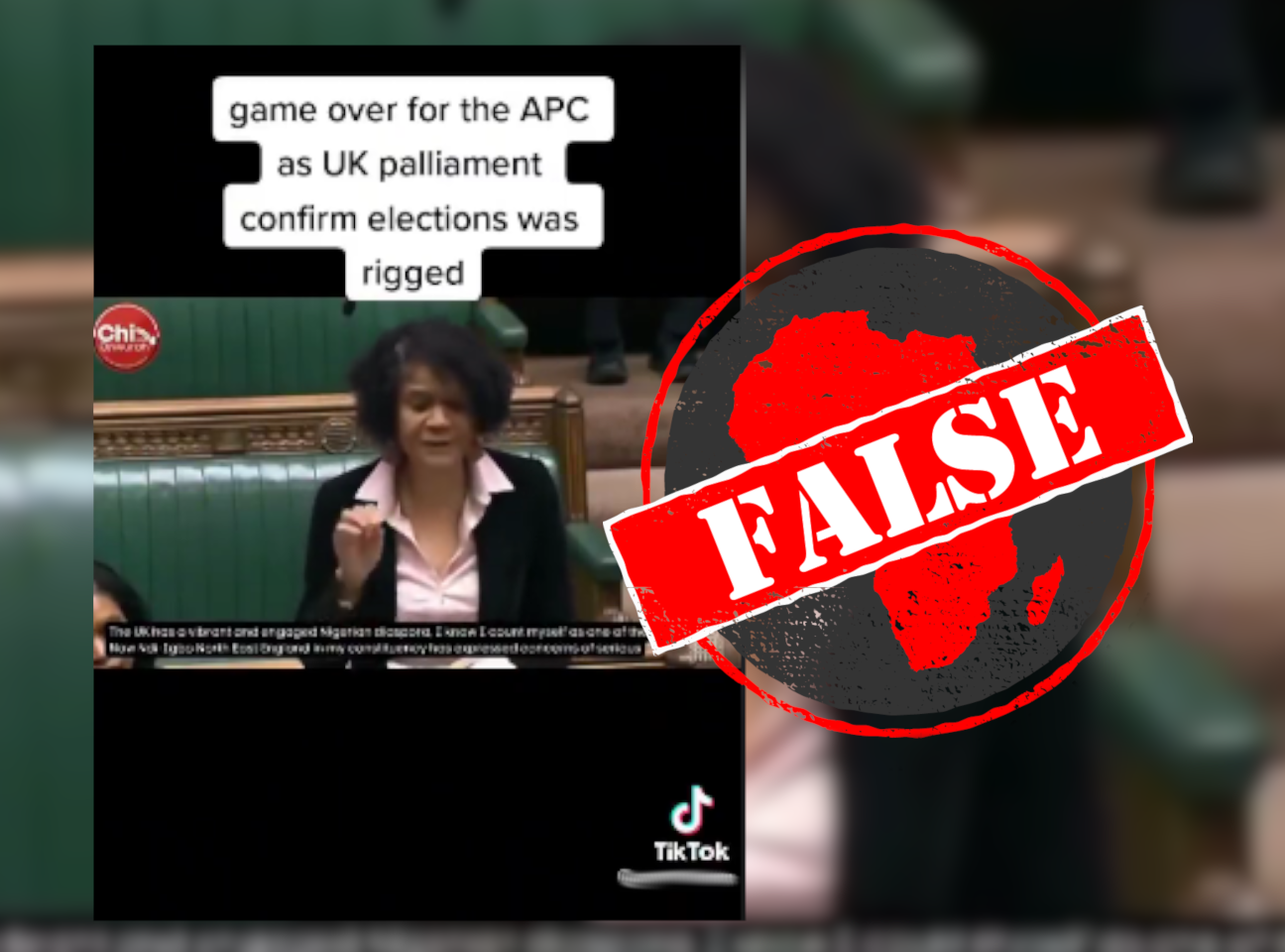IN SHORT: The results of Nigeria’s February 2023 presidential election are being challenged in court. But claims on social media that the UK parliament confirmed that the vote was tampered with are false.
A video shared on Facebook in Nigeria claims that members of parliament in the United Kingdom have confirmed that the 2023 presidential election was rigged.
The video, reposted from Tiktok, is captioned: “game over for the APC as UK palliament [sic] confirms election was rigged.”
The APC refers to the All Progressives Congress, the ruling party to which president-elect Bola Tinubu and his predecessor Muhammadu Buhari belong.
Tinubu was declared the winner of the February 2023 presidential election on 1 March. This result has been challenged in court by the opposition.
Dino Melaye, a former senator and spokesman of the presidential campaign of the Peoples Democratic Party, the largest opposition party in Nigeria, also shared the post on his Facebook page to his 1.9 million followers.
“APC rigged the election,” Melaye captioned the video on 17 March.
The video has been re-posted more than 2,500 times since Melaye posted it, including here, here, here and here.
But did members of the British parliament really say Nigeria’s election was rigged?

No, video shows parliamentary debate session
In the video, a member of parliament who says she counts herself as a member of the “Nigerian diaspora”, says that a group in her “constituency” has raised “concerns of serious failures of technology, security and communications in last month’s presidential elections, as has the European Union”.
She asks “the minister” “what went wrong” in the Nigerian election, despite the support the UK government gave Nigerian civil society and the country’s Independent National Election Commission. The minister replies that the MP is correct that his government gave GBP5 million to Nigerian civil society. The video ends after he says that they “commend all those involved”, particularly for “resolving disputes through the courts and through peaceful means”.
But there is no mention in the video that the Nigeria election was “rigged”.
At the end of the video clip, a logo is shown for “Chi Onwura”. Onwura is an MP and a member of the UK’s opposition, the Labour Party.
The minister replying to Onwura is the Conservative Party MP Andrew Mitchell.
We found the transcript of the 14 March parliamentary session in the video clip, published on the website of the UK parliament. It also shows that no one in the UK parliament said the Nigerian election was rigged.
The claim that the UK parliament “confirmed” Nigeria’s election was rigged is false.
Republish our content for free
For publishers: what to do if your post is rated false
A fact-checker has rated your Facebook or Instagram post as “false”, “altered”, “partly false” or “missing context”. This could have serious consequences. What do you do?
Click on our guide for the steps you should follow.
Publishers guideAfrica Check teams up with Facebook
Africa Check is a partner in Meta's third-party fact-checking programme to help stop the spread of false information on social media.
The content we rate as “false” will be downgraded on Facebook and Instagram. This means fewer people will see it.
You can also help identify false information on Facebook. This guide explains how.





Add new comment